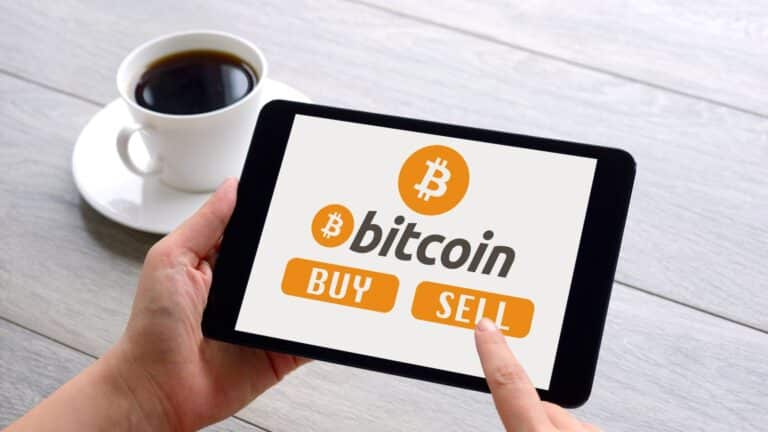Cryptocurrency wallets are used to store your digital assets, but not all wallets are the same. Choosing between software and hardware wallets is a critical decision when engaging with Bitcoin ATMs. The wallet you select has an impact on the security, accessibility, and user experience. Different wallets range in their purpose, security, and capabilities. In this article, we will discuss the types of wallets available and the factors that will impact your decisions if you are using the wallet for Bitcoin ATMs. We will also discuss security considerations, user experience and accessibility, strategies for choosing the right wallet, and future developments.
Bitcoin ATMs are growing in popularity, and RockItCoin has over 2,000 locations to make buying and selling Bitcoin convenient, safe, and fast. If you are looking to buy or sell Bitcoin for cash, a RockItCoin ATM is a great choice! Before you use the ATM, you’ll need a wallet.
Understanding Bitcoin ATMs
When transferring funds, you’ll need to provide the receiving wallet’s address to establish the proper destination. This address is a public key that consists of a long string of alphanumeric characters. To simplify this process and to avoid user errors when inputting the key at a crypto ATM, a RockItCoin ATM will scan a QR code in your digital wallet to direct the funds to the proper destination. Once the ATM has scanned the QR code in your wallet, the destination has been accurately inputted.
Remember, sending your funds to the incorrect address is irreversible, and if you manually input your public key, you run the risk of losing the assets you have paid for. Private and public keys keep your wallet secure. When funds are being transferred, security relies on accurate inputs of information, so to be sure that your funds make it to your wallet, QR codes are used. Once the transaction has been confirmed on the blockchain, your funds will appear in your wallet. Confirmation times vary, but RockItCoin’s ATMs are speedy and efficient. If you are interested in buying or selling Bitcoin in exchange for cash, our machines are reliable, secure, and convenient options. Our wallet is also geared to operate seamlessly with the RockItCoin machines, creating a great user experience with minimal room for security issues or user error.
Security is of the utmost importance when it comes to Bitcoin ATMs and using a secure wallet should be any user’s priority. Let’s talk about the different options and the factors that will impact the wallet you select.
Types of Crypto Wallets
Crypto wallets store and protect your private and public keys. A wallet provides access to your assets so transactions are possible, and the proper wallet is crucial for keeping your assets safe.
Hot Storage vs Cold Storage
Some crypto wallets have an internet connection and others do not. Hot storage means that your wallet is stored online. Cold storage means that your wallet is offline.
- By storing your keys in hot storage, users have the convenience of sending and receiving their coins anywhere from the convenience of their phones or computers. Hot storage is typically used for daily transactions or trading on exchange platforms.
- By storing your keys in cold storage, users take advantage of the maximum security over their funds. Hackers cannot access your keys through malware. This type of storage is typically used for long-term storage. Cold storage is regarded for its benefits for long-term asset protection.
Software Wallets
Software wallets use “hot storage” meaning that the wallet has an internet connection. This type of wallet is used on your desktop or phone and their accessibility is a key feature for users looking to optimize day-to-day transactions. Three common types of software wallets are mobile wallets, web wallets, and desktop wallets.
Mobile Wallets
Mobile wallets are a type of software wallet that can be downloaded and used on your mobile phone. These wallets are usually apps that are connected to exchanges so you can store your coins, and initiate transactions in one convenient space. Mobile wallets are user-friendly but it is important to research the security measures before making a selection as some wallets are much more susceptible to hacking and malware than others. If you are looking for an easy way to conduct on-the-go transactions, then a mobile wallet is a good option for you.
Web Wallets
Web wallets are another type of software wallet that connects to a browser for key storage. You can access a web wallet through your computer or phone.
Desktop Wallets
Desktop wallets are one more type of software wallet. This wallet is downloaded to your computer hard drive to allow you to access your keys and funds through your computer. It is similar to a mobile wallet, but instead of using the application on a phone, you will access it on a computer.
Hardware Wallets
Hardware wallets use “cold storage” meaning that the wallet has no internet connection. This type of wallet involves some sort of device (like a USB drive) that can hold your keys. Transactions are made by plugging the hardware wallet into a device with transaction capabilities. Because these wallets use cold storage, hackers cannot access your keys without obtaining the device. These wallets are ideal for long-term storage.
Paper Wallets
Keys can also be stored in a paper wallet. Paper wallets are another kind of cold storage, but because they can be easily damaged, they have slowly fallen out of popularity. If you take care of it and store your paper wallet in a safe place, this can be a great option. When using a RockItCoin ATM, users have the option to print a paper wallet.
Risks and security measures associated with the different types of digital wallets vary. When selecting the wallet you want to use, research the technologies and procedures in place to keep your keys safe.
Security Considerations
Now that you know about the different types of wallets available for you to choose from, we can dive into the security measures you should consider.
We have mentioned that there are some inherent advantages in place with hardware wallet storage that mitigate the risks of hacking. Still, there are highly effective practices you can put into place to keep your keys safe in other hot wallet options.
Use two-factor authentication (2FA) for accessing your mobile apps or other software wallets. When 2FA is implemented, access requires a password or pin with an additional factor, like a temporary code sent to your phone or email, a fingerprint scan, or facial recognition. 2FA significantly strengthens the security of your wallet by reducing the likelihood of unauthorized access. Even if your passwords or pins are compromised, your account will remain locked. It is highly recommended for individuals to enable and use 2FA when using hot wallets.
Keeping your software up to date is a great habit to maintain. New security measures come with updates, and as the crypto world is constantly changing, the security measures that come with every update can make a big difference in your funds’ protection.
It is also a great idea to regularly back up your wallet. You can typically back your wallet to the cloud or manually back it up with a recovery phrase.
Private key security (in both software and hardware wallets) is of the utmost importance. Remember, anyone who obtains access to your private keys or wallet has access to your funds. Your private key should be kept secret at all times. If another person is able to access your private key, your funds could be permanently lost.
User Experience and Accessibility
Different user-friendly features may make a difference in your choices as you find the wallet that works best for you. If you are new to crypto, diving into a complicated interface can harm your experience. Finding an app that is intuitive and easy to use will make a big difference. Check out the reviews for any wallets you are considering to learn about other user’s experiences using them.
Accessibility of the wallet is another factor to consider. The accessibility of each digital wallet varies, and when using a Bitcoin ATM it is a good idea to make sure that your wallet is compatible with the machine.
Balancing security, accessibility, and user experience should be the top factors guiding your decision.
Best Strategy for Choosing a Wallet
So, what’s the best strategy for choosing a digital wallet to store your crypto? Assessing your individual needs and preferences is going to be an important first step.
You can often find the best wallet for you by deciding how often you want to access your funds and how much crypto you want to spend, buy, sell, or trade. You should also consider how important fast transactions are for you. The first step to strategizing the decision is going to be figuring out how you want to use the assets you are securing.
When selecting a wallet to use at a crypto ATM, our RockItCoin app makes it easy to safely buy, store, swap, send, and receive your favorite cryptos.
Future Trends and Developments
As crypto ATMs become more mainstream, it is always a good idea to stay up to date on the technological developments that may impact your wallet selections.
As crypto ATMs grow in popularity, the ability to cash out on your crypto assets has become more and more accessible too. As the crypto ecosystem develops in favor of daily transactions, finding a variety of wallets to serve different purposes is a good idea. Most crypto users use a selection of different wallets to suit their various investments and uses. Placing some of your assets in a daily wallet, like an app, is a good idea. Placing bigger funds in more secure hardware wallets will keep your savings safe.
Emerging technologies in wallet options for Bitcoin ATM transactions seem to be geared towards advancements in security features, but be on the lookout for upgrades that support growing diversity in assets as well. Features that allow users to switch from one coin to another may be rolled out by more applications and wallets soon.
Wallets are also evolving to be more user-friendly. Since the cryptocurrency user demographic has expanded to all levels of technical experience, more intuitive apps are being favored.
Choosing the correct wallet is a significant decision to make. As the popularity of crypto continues to climb, more and more wallets are developed, and choosing the correct one can be difficult. Choosing between software and hardware wallets is just the start. Learning all about the diversity in storage options is crucial if you want to find a wallet that best suits your needs.
RockItCoin’s commitment to secure and efficient transactions is highly regarded, and our commitment to the best user experience is obvious in the seamless interactions between our mobile app and our ATMs. Check out our mobile app to store your keys safely!








